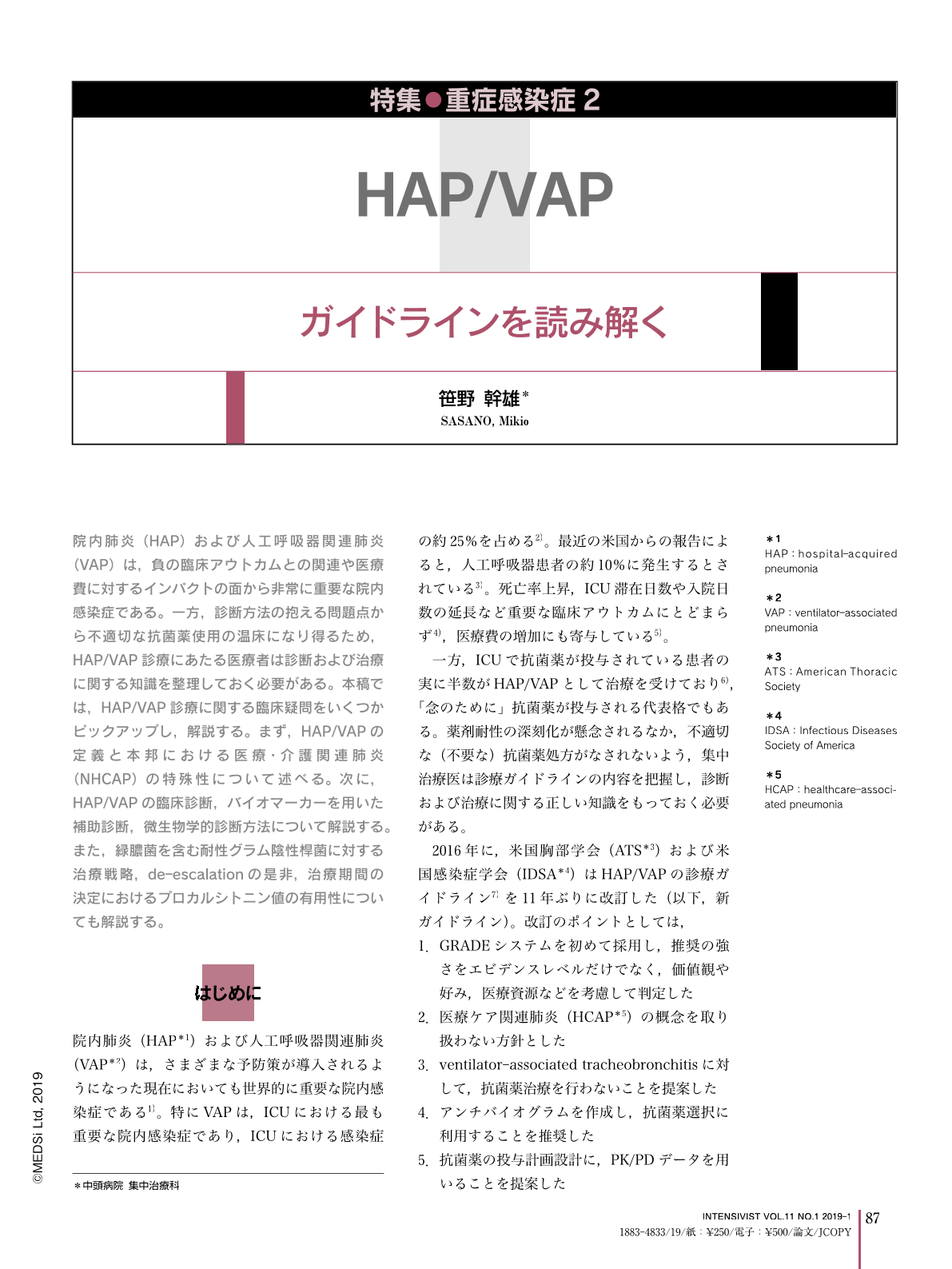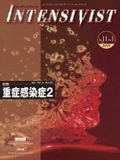Japanese
English
- 有料閲覧
- Abstract 文献概要
- 1ページ目 Look Inside
- 参考文献 Reference
院内肺炎(HAP)および人工呼吸器関連肺炎(VAP)は,負の臨床アウトカムとの関連や医療費に対するインパクトの面から非常に重要な院内感染症である。一方,診断方法の抱える問題点から不適切な抗菌薬使用の温床になり得るため,HAP/VAP診療にあたる医療者は診断および治療に関する知識を整理しておく必要がある。本稿では,HAP/VAP診療に関する臨床疑問をいくつかピックアップし,解説する。まず,HAP/VAPの定義と本邦における医療・介護関連肺炎(NHCAP)の特殊性について述べる。次に,HAP/VAPの臨床診断,バイオマーカーを用いた補助診断,微生物学的診断方法について解説する。また,緑膿菌を含む耐性グラム陰性桿菌に対する治療戦略,de-escalationの是非,治療期間の決定におけるプロカルシトニン値の有用性についても解説する。
Hospital-acquired pneumonia(HAP) and ventilator-associated pneumonia (VAP) are common and important hospital-acquired infections with high morbidity, mortality, and cost. In 2016, the Infectious Diseases Society of America and the American Thoracic Society updated the guideline for the diagnosis and management of patients with HAP and VAP. The guideline puts strong emphasis on the management of multidrug-resistant pathogens. For the diagnosis of VAP the guideline suggests noninvasive sampling (eg, endotracheal aspiration) with semiquantitative cultures, rather than invasive (eg, bronchoscopy) or noninvasive sampling with quantitative cultures. The optimal method to establish the diagnosis of VAP remains controversial. For patients with HAP/ VAP who are being treated empirically, the guideline recommends antibiotics with activity against P. aeruginosa and other gram-negative bacilli regardless of the duration of hospitalization/intubation or severity. In addition to assessing risk factors for antimicrobial resistance, the local antibiogram should be utilized to decide on the implementation of dual antimicrobial therapy against P. aeruginosa. Treatment strategies such as de-escalation of antibiotics or procalcitonin-guided therapy are not evidence-based, and are only weakly recommended in the guideline.

Copyright © 2019, MEDICAL SCIENCES INTERNATIONAL, LTD. All rights reserved.


